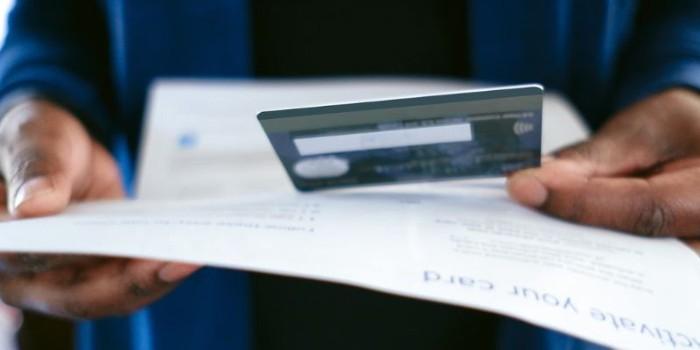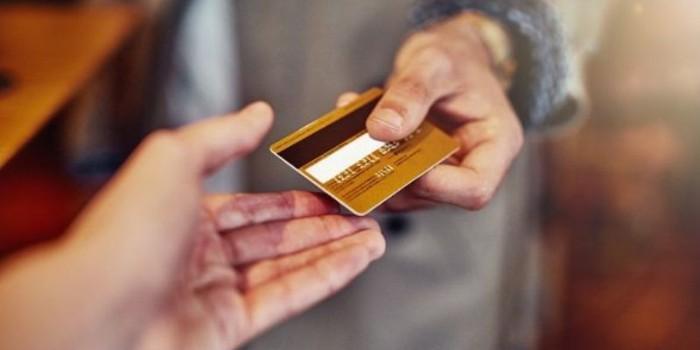Should You Sign the Back of Your Credit Card
Jul 02, 2023 By Triston Martin
Is it safe to sign the back of your credit card? There are numerous opinions on this topic, but it is important to understand the process to make an informed decision.
In many cases, signing the back of your credit card could help protect you from fraud and other problems associated with identity theft.
With that in mind, this blog post will analyze both sides of the debate and examine which option might be best for individual needs when deciding whether or not to sign the back of a credit card.
What is the significance of signing the back of your credit card
Cardholders must sign the back of their credit card to ensure security and protect themselves against fraudulent activity.
Here are the key reasons why signing the back of your credit card is significant:
- Verification: By signing the back of your credit card, you create a signature that can be compared to the one you provide while making a purchase. It serves as a form of verification for merchants and helps them confirm that the person using the card is the authorized cardholder.
- Preventing Fraud: The signature on your credit card's back is a deterrent to potential thieves or unauthorized individuals who may attempt to use your card. It makes it more difficult for someone else to forge your signature, reducing the chances of fraudulent transactions.
- Card Acceptance: Many merchants and establishments require a signed credit card as a condition for accepting it as a form of payment. If you still need to sign the back, you may encounter difficulties using your card for purchases.
- Dispute Resolution: In case of a dispute or fraudulent activity on your credit card, having a signed card can strengthen your case. It provides evidence that you are the rightful owner and can aid in resolving issues with your credit card company or the merchant involved.
- Legal Protection: Some credit card companies state in their terms and conditions that you must sign the back of your card. Failure to comply may result in the cardholder being held liable for fraudulent transactions. Signing the card ensures you adhere to these requirements and protects you from potential liability.
Signing the back of your credit card is a simple yet significant step in safeguarding your card and minimizing the risk of fraud. It helps verify your identity, facilitates card acceptance, aids in dispute resolution, and offers legal protection as a cardholder.
The legality and safety of signing the back of your credit card

Signing the back of your credit card is both legal and safe. It is a common practice recommended by credit card issuers and financial institutions. By signing the card, you are fulfilling the card issuer's requirement for cardholders.
This helps protect you against unauthorized use of your card, as the signature can be used for transaction verification. However, it is important to note that the signature alone may not prevent all types of fraud.
It is advisable to also follow other security measures, such as keeping your card secure, monitoring transactions, and promptly reporting any suspicious activity to your card issuer.
Pros and cons of signing the back of your credit card
Pros
- Verification: Helps merchants verify your identity during transactions.
- Acceptance: Many establishments require a signed card for payment acceptance.
- Dispute resolution: Provides evidence of ownership and strengthens your case in disputes.
- Legal compliance: Fulfilling the card issuer's requirement can protect you from potential liability.
Cons
- Signature forgery: A forged signature can still be used for fraudulent transactions.
- Limited protection: The signature alone may not provide comprehensive protection against all types of fraud.
- Potential theft: A signed card can be a target for thieves, who can attempt to copy your signature or misuse your card information.
While signing on the back of your credit card offers benefits like verification and acceptance, it's important to remain vigilant and adopt additional security measures to protect against fraud and unauthorized use.
Tips for securely using your credit card when out in public
To securely use your credit card when out in public, consider the following tips:
- Keep your card secure: Carry your card in a wallet or purse that is difficult for thieves to access or snatch.
- Protect your PIN: Shield the keypad when entering your PIN at ATMs or point-of-sale terminals to prevent others from seeing it.
- Be cautious with card details: Avoid sharing your card information with anyone or over unsecured networks, such as the card number or CVV.
- Verify card readers: Before using your card, inspect card readers for any signs of tampering or suspicious devices attached.
- Monitor your transactions: Regularly review your credit card statements or use mobile banking apps to track transactions and quickly report unauthorized charges.
- Be aware of your surroundings: Stay alert and aware of people around you when using your credit card in public to prevent shoulder surfing or theft.
By following these guidelines, you can help protect your credit card information and reduce the risk of fraud while using your card outside your home.
Best practices to protect yourself from identity theft

To protect yourself from identity theft, follow these best practices:
- Safeguard personal information: Secure sensitive documents like social security cards and financial statements.
- Use strong, unique passwords: Employ strong passwords for online accounts and avoid using the same password across multiple platforms.
- Be cautious online: Avoid clicking suspicious links or sharing personal information on unsecured websites.
- Regularly monitor financial accounts: Review bank statements, credit reports, and transaction activity for any signs of unauthorized activity.
- Shred sensitive documents: Destroy old financial records and documents before discarding them.
- Use secure networks: Avoid accessing personal information or making financial transactions on public Wi-Fi networks.
Implementing these practices can significantly reduce identity theft risk and protect personal information.
How to dispute a fraudulent charge on your credit card
To dispute a fraudulent charge on your credit card, follow these steps:
- Contact your credit card issuer: Call the customer service number on the back of your card and report the fraudulent charge immediately.
- Provide necessary details: Explain the situation, the transaction details, and any supporting evidence.
- File a dispute: Request to initiate a dispute on the fraudulent charge and ask for a chargeback.
- Follow up in writing: Send a written letter to your credit card issuer outlining the details of the dispute and enclosing any relevant documentation.
- Monitor your account: Regularly check your account for updates on the dispute and ensure that the fraudulent charge is removed.
By promptly reporting and disputing fraudulent charges, you can protect yourself and increase the chances of a successful resolution.
FAQs
Should you sign the back of your credit card?
Yes, signing the back of your credit card as soon as you receive it is generally recommended. Signing the card adds an extra layer of security and helps prevent unauthorized use if lost or stolen.
What are the benefits of signing the back of your credit card?
Signing the back of your credit card makes it clear that the card belongs to you and helps merchants verify your identity during transactions. It can also deter potential fraudsters, who may be less likely to use a card with a visible signature.
Are there any alternatives to signing the back of your credit card?
If you prefer not to sign the back of your credit card, you can consider writing "See ID" instead. However, remember that this practice is only sometimes accepted and may offer a different level of protection than a signature. Checking with your card issuer or financial institution for their recommendations is best.
Conclusion
Signing the back of your credit card is optional. However, research has shown that it can be more secure and safe. By signing the back of your credit card, you can help to protect yourself from identity theft or fraudulent purchase. It is important to remember to always keep your credit card out of sight when in public and, most importantly, never share your personal information or PIN with anyone.








